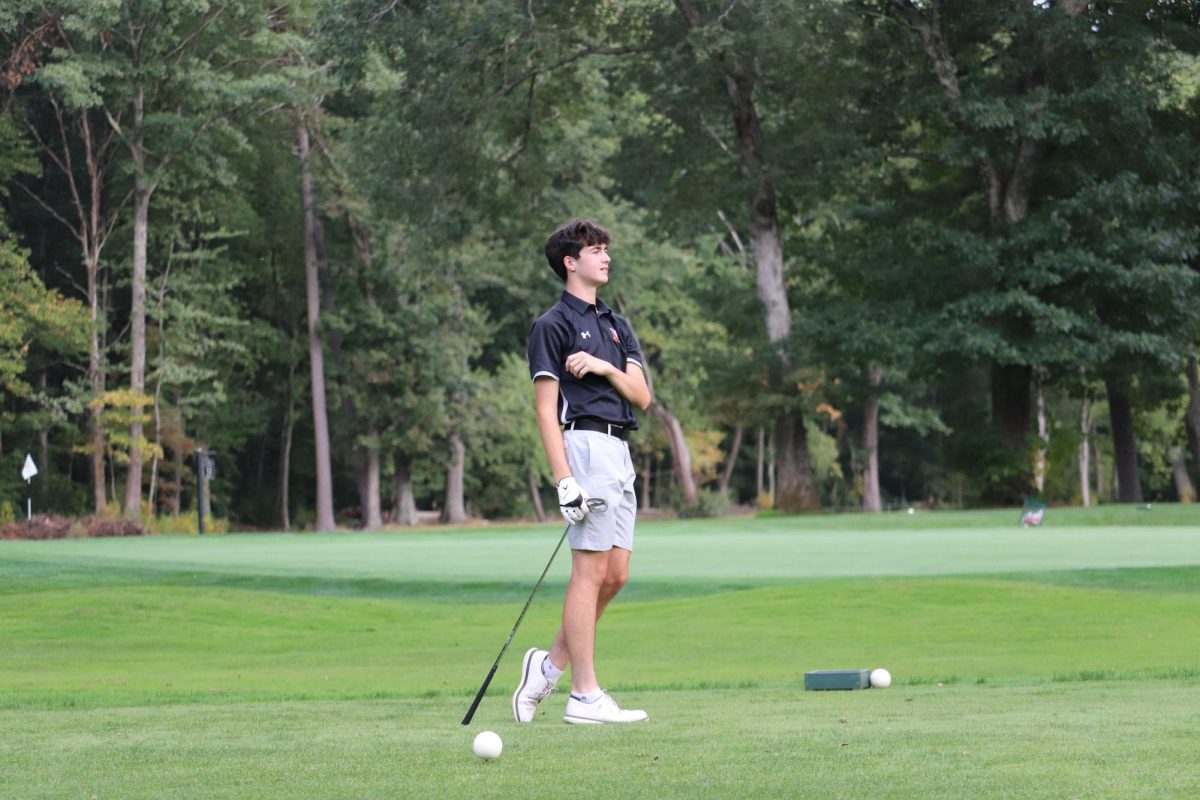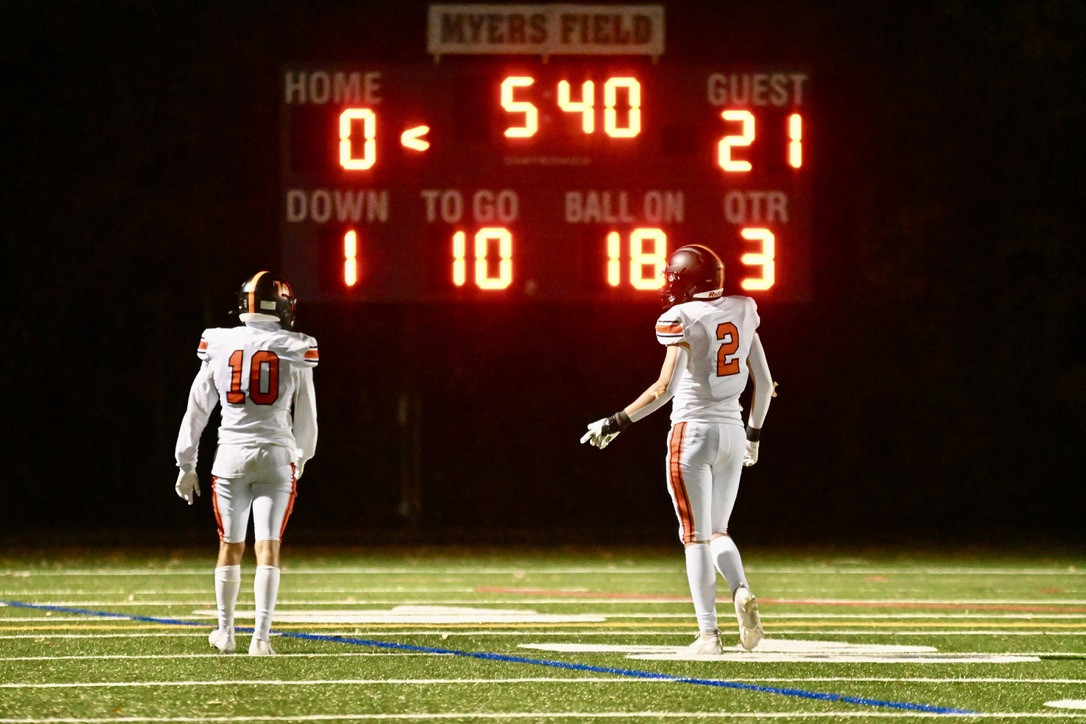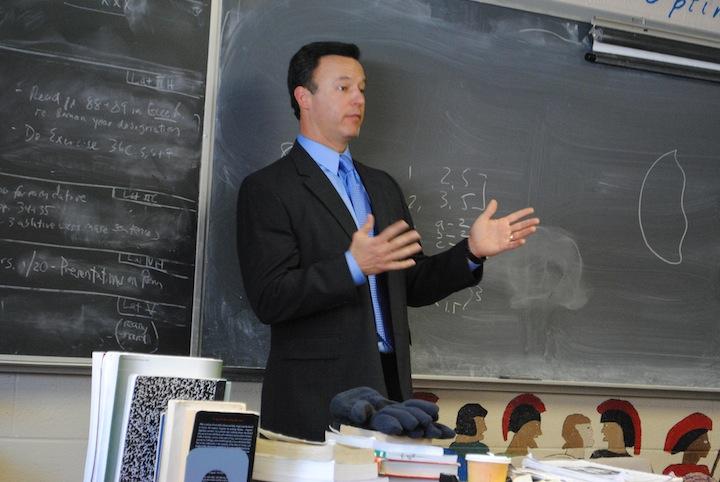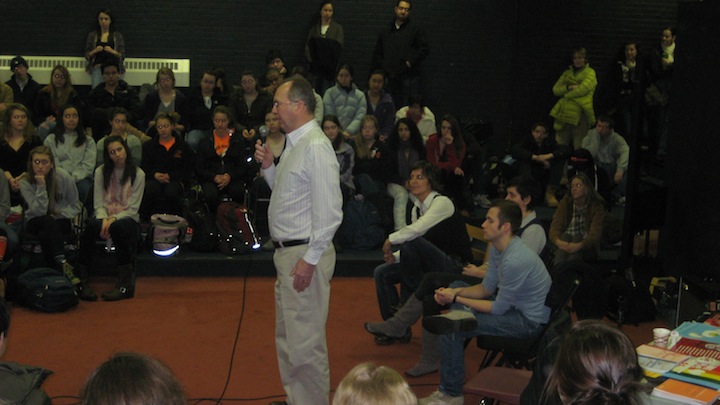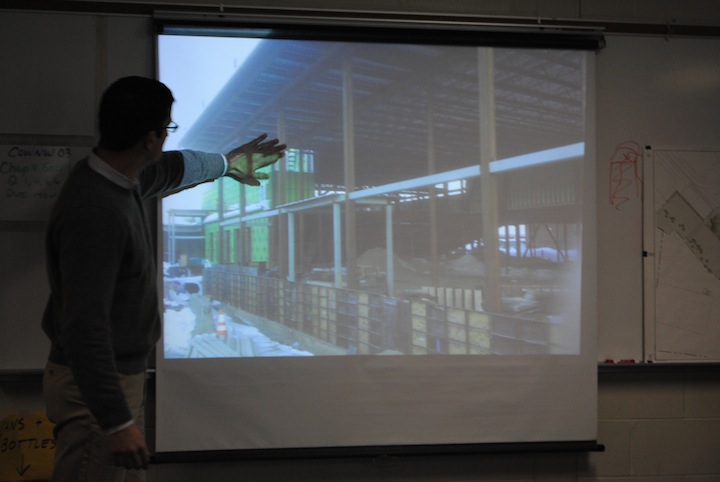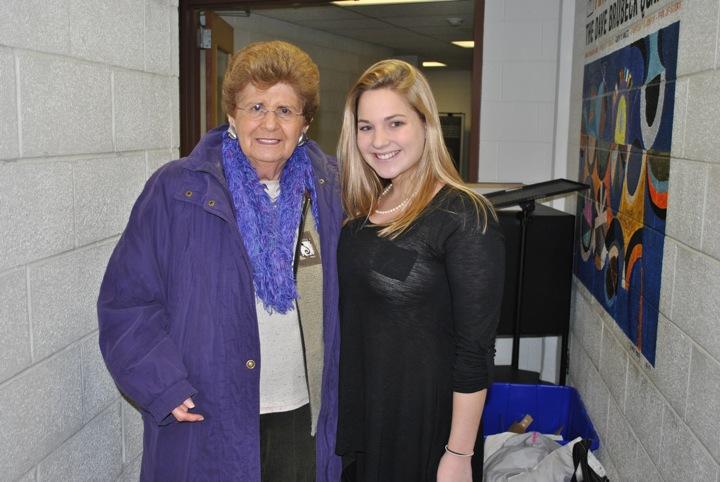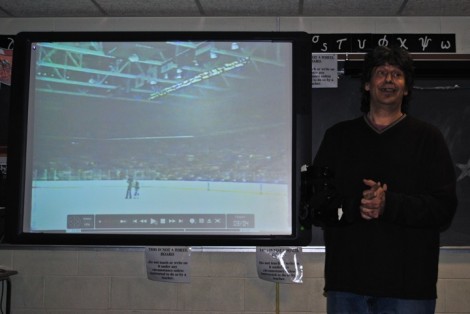
Although they fell short of their goal, placing seventh in the competition, their training was not in vain. Botticelli believes that his journey taught him countless valuable lessons about making prudent choices in life.
31 years removed from that winter, Botticelli, the former captain of the Olympic figure skating team, visited Wayland High School during Winter Week to discuss his career as a figure skater and to counsel students on decisions that could shape their futures.
“[Students have] got to start to think now. Think about today, what you’re doing today, and how it will affect you later,” Botticelli said.
His commitment to his figure skating career forced Botticelli to make sacrifices and life-changing decisions. Botticelli received a GED, rather than a diploma from Weston High School, because of his absence while training. However, despite his absence in the classrooms, Botticelli kept learning wherever he went.
“Without opening a history book, I was accumulating knowledge,” he said.
Botticelli hopes to help students make the right decisions and to continue to learn from both textbooks and personal experiences. This regular process of learning has allowed Botticelli to become the figure skating teacher that he is today.
“The most important thing about teaching is to never stop learning,” he said. “If I stop learning, I’m not an effective teacher.”
During his talk, Botticelli also brought up the idea of perception, saying that his perception of how well he had performed in the Olympics had no bearing on the score. Instead, his fate and the fate of every other contestant was determined by the subjective opinions of the judges.
“Perception is 9/10th of reality. It doesn’t matter what I think; in your minds, I am what you think I am,” said Botticelli.“It’s how you perceive people which makes them who they are…your actions have meaning to somebody else.”
Botticelli and Franks were the youngest pair to compete in the National Competition in 1972. In 1976, the duo failed to qualify for the Olympics; nevertheless, their shortcomings became an impetus for future goals.
“What drove me was in 1976 trying to qualify for the Olympics. We missed making the ‘76 Olympics by one tenth of a point from one judge,” Botticelli said. “The fastest response from my father was, ‘Well doesn’t it make you want it that much more?’”
By visiting the high school and talking with students, Botticelli hopes to help kids realize that their decisions in school have a major impact on their future. For this reason, students should begin looking far ahead in the future and begin taking advantage of the situations presented to them.
“[In Wayland,] you guys are more prepared than 90% of the rest of the country,” he said. “Think how the little things you do each day will make you better, and make you stronger.”




























